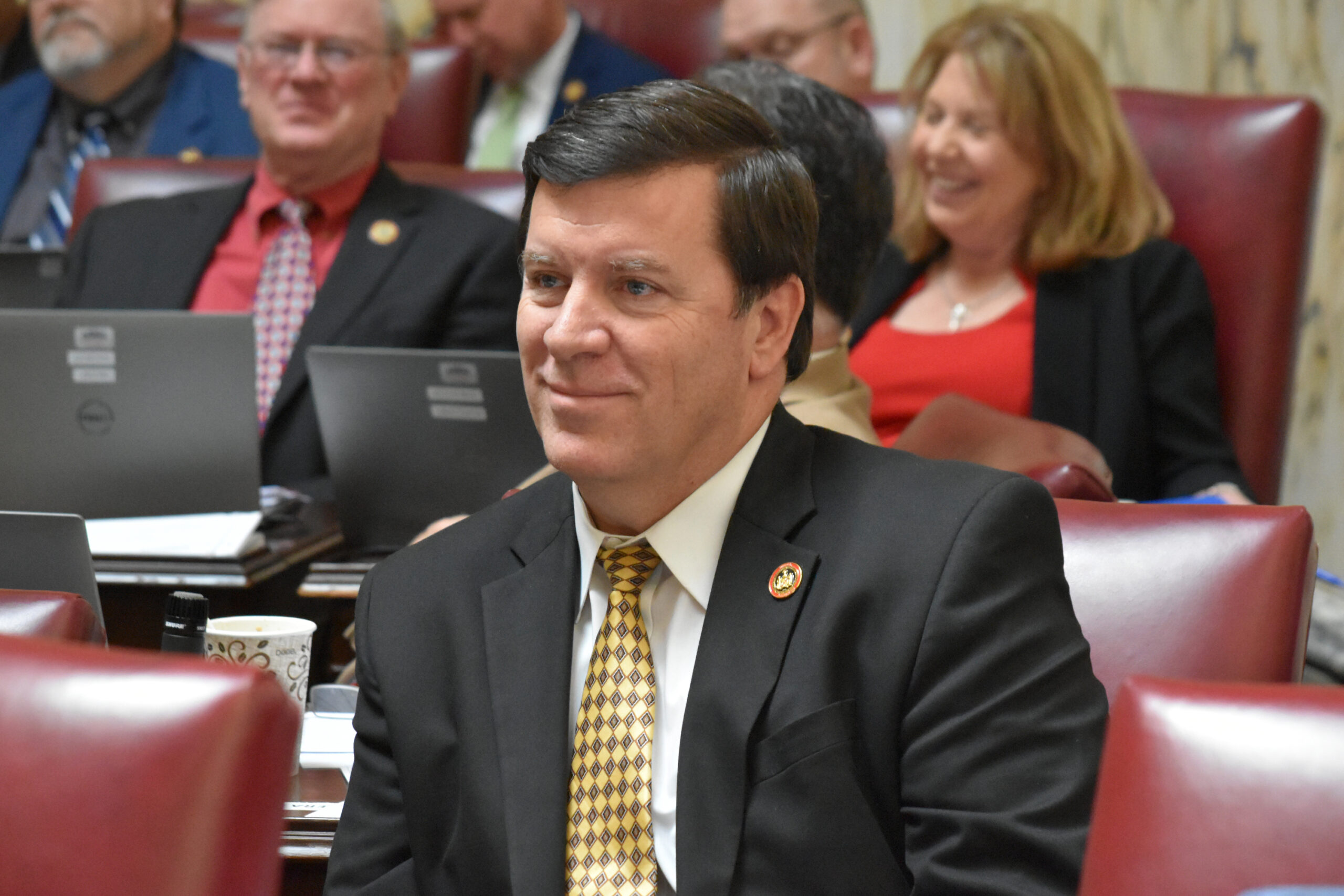Norman Stone, longest-serving Senate member, dies at 87

Norman R. Stone Jr., a bricklayer who went on to become both the longest-serving member of the General Assembly as well as the Maryland State Senate, died Friday at Anne Arundel Medical Center, according to his son retired Baltimore County District Court Judge Norman R. Stone III.
A cause of death was not immediately disclosed. The former Dundalk lawmaker, who moved to Anne Arundel County in his later years, had been in declining health for years. He was 87. Funeral arrangements were not immediately available.
“He was a great man but also a good man,” said Michael Lore, a former chief of staff to Stone. “He had a really good heart.”
Stone was the son of Norman R. Stone — who later changed his name to Raymond N. Stone — a plant manager at the Glenn L. Martin plant in Middle River and Lucy (Fratta) Stone, a homemaker.
Stone attended public schools in Baltimore City. He later graduated from the University of Baltimore and the University of Baltimore School of Law. During that time, he worked as a bricklayer and a saxophone player in a band that played local clubs.
Stone, not yet 25, volunteered in the effort to elect John F. Kennedy to the White House. He later caught the eye of Democratic Party bosses including Michael J. Birmingham.
Birmingham, the powerful eastside party boss and first executive of Baltimore County called Stone at home early on a weekend morning and asked him to run for the House of Delegates. Stone, in a 2010 interview, said the request came more in the form of a statement and few people said no to the man known as “Iron Mike.”
Stone served just one term in the House of Delegates before being elected to the Senate in 1967, where he served another 48 years.
While in the Senate, Stone was vice chair of the Senate Judicial Proceedings Committee for three years. He also served as Senate president pro tem for four years and in 2000 was given the honorary title of Senate president pro tem emeritus. He also served as chairman of the Baltimore County Senate delegation twice for a total of 11 years.
He opposed taxes and abortion but was seen as pro-environment, pro-worker and pro-union.
“He knew how to read a bill and nobody wanted to take him on on the floor — especially on labor issues,” said Patrick Roddy, a retired lobbyist.
His conservative fiscal views likely saved him on at least one occasion.
In 1990, a wave of anti-property tax sentiment drove Baltimore County voters to elect its first Republican county executive since Spiro Agnew. And while Dundalk voters threw out an incumbent Democratic councilmember seen as tax-friendly, they retained Stone, who was the frequent sponsor of property tax assessment reform bills.
Stone’s votes on social issues, however, angered growing segments of his own party.
Near the end of Stone’s tenure, progressive upstarts like David Moon were growing in number and finding their voices.
Before Moon was elected to the House of Delegates and later became vice chair of the House Judiciary Committee, he authored a progressive blog on Maryland politics.
In a 2012 post, Moon took issue with an anti-bestiality bill introduced by Stone (ultimately withdrawn). In the post, he blasted Stone, calling him “a jerk” and “a disgrace to the Democratic Party and the institution of the State Senate. He is a relic from a hateful part of America’s past.”
Moon later called for Democrats to challenge Stone in the Democratic primary. Stone, then 79, retired rather than seeking re-election in 2014.
In 1967, Stone was part of a bloc of senators who helped defeat a bill to overturn the state’s miscegenation laws. Those laws, established more than 300 years earlier, banned marriages between white and Black people.
The bill returned a year later as the U.S. Supreme Court was considering the landmark Loving v. Virginia case.
The Maryland Senate voted 35-7 to repeal the ban. Stone was among seven who remained opposed to the repeal.
In 1999, Stone voted against a law that ended discrimination based on sexual orientation. The bill was backed by then Gov. Parris Glendening (D), whose brother Bruce was gay and died of AIDS.
“I just don’t believe the bill is necessary,” Stone told the Washington Post in 1999. “It’s a little different than race and religion. I’m not certain that [homosexuality is] not a learned lifestyle.”
The vote almost cost Stone his seat. Glendening merged his district with another in northern Anne Arundel County.
Stone and other lawmakers challenged the maps. The Maryland Court of Appeals later rejected Glendening’s version and opted to draw their own districts.
Former Sen. Clarence Mitchell IV (D-Baltimore) was also a party to that lawsuit. The changes in Stone’s district meant Mitchell’s new district included parts of Dundalk which were not familiar to Mitchell, who is Black.
Mitchell’s father also served with Stone when the Dundalk senator voted against state laws prohibiting Black people from marrying white people.
Mitchell, the grandson of civil rights pioneer Juanita Mitchell, said Stone’s votes didn’t make for an awkward working relationship on other issues. He called Stone “a friend.”
“Norman Stone was one of the fairest men in the State Senate,” said Mitchell. “If he gave you his word, you had his word. If he told you he couldn’t vote for it. You could take that to the bank. He would never surprise you. All you asked for down there is for somebody being straight up and honest with you. Everybody’s got their own constituencies. They have their own issues. And yes, you know, public accommodations back in the 60s, miscegenation, housing, all that stuff, were big deals, but if somebody were man enough or woman enough to come to you and said, ‘Look, I can’t vote for it, and here’s why.’ You can’t ask for more than that.”
Stone cast a similar vote in 2014 in opposition to what was the successful repeal of a ban on same-sex marriage. That vote came almost 45 years to the day of his vote against the repeal of the state’s miscegenation law.
“I voted my conscience,” Stone told WYPR in 2014. “I always voted the way I felt. I voted what I thought the people I represented, the way they wanted me to vote.”
Stone is survived by his second wife Joanne, son Norman Stone III of Perry Hall, Lori Josey and David Stone, both of Florida, Jerry Stone of Kingsville and a step-step son Lenni Lehner Jr. He also had eight grandchildren.
Funeral arrangements were incomplete at the time of publication.




 Creative Commons Attribution
Creative Commons Attribution